#FreeThinking
Explore tagged Tumblr posts
Text
This is the difference between wondering & worry.
I don't worry anymore when I wonder if you'll be around in my mid 30's.
I mean, I wonder why I worry how you set me down so quickly but,
having to wonder became the reason why I can't bring myself to worry.
///
With hope on my horizon;
& a monkey on my back.
My reason for success
became the reason for all of that.
As the pigment in your blood,
turns black as the sky, without a sun.
You took my life & I stole back,
leave me alone & keep the rest.
You showed me who you are
by the absence that you left.
So go back on the run
from the demons you possess.
-Pete McIntire
#writers on tumblr#poets on tumblr#twcpoetry#writers#spilled thoughts#poetry#writerscreed#spilled poetry#spilled writing#black magic poetry#written thoughts#creative writing#writer#my writing#writers and poets#spilled words#spoken poetry#original poem#poetsofinstagram#artists on tumblr#writersontumbler#writerscommunity#artist#creativewriters#writing#spoken word#poetic#freewritting#freethinking#excerpt from a book i'll never write
3 notes
·
View notes
Text
Nothing in life is to be feared, it is only to be understood. Now is the time to understand more, so that we may fear less.
Marie Curie
#marie curie#fear#fearless#understanding#unknown#life#reason#purpose#science#experience#feeling#thinking#question#open minded#freethinking#truthseeking#freedom#exploration#wisdom#discovery#evolution
26 notes
·
View notes
Text

2 notes
·
View notes
Text
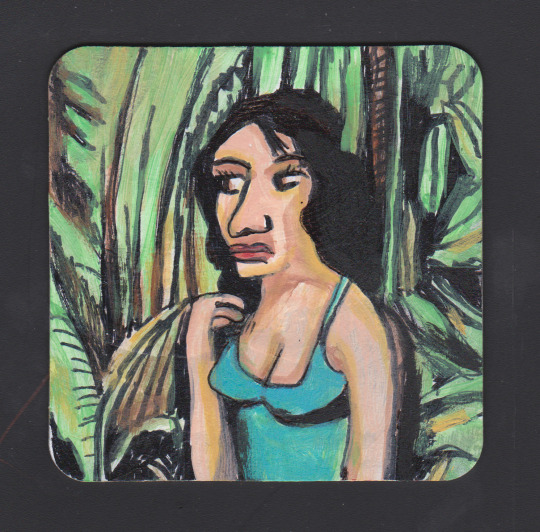
Whenever someone comes to my page looking for some wholesome content: “Are U lost?”
#keepscrolling#searching#wholesome#content#areUlost#itsOK#facethetruth#acceptyourself#freethinking#irony#acrylic#painting#artoftheday#artists on tumblr#outsiderart#lowbrowart#kunst#flomm#flommist#artwork#dailyartwork#beercoaster#coasterart#bierdeckel#beermat#handpaintedbeercoaster#perspective
2 notes
·
View notes
Text
[Liberation of Mind - A Journey]
[Scene 1 - 2nd Year of High School] (Classroom. Idris sits in the middle row, staring at the blackboard with deep thought. The teacher is explaining the lesson, but something bothers him. He raises his hand.)
Idris: "Sir, if this theory is correct, what if we consider a different perspective? Is there a possibility that this theory has flaws?"
(The room falls silent. The teacher pauses, then narrows his eyes, feeling cornered. Some students suppress their laughter.)
Teacher: "That’s a strange question. It seems like you're overthinking unnecessary things. Just focus on what I teach, don’t act too smart."
(Other students laugh. Idris lowers his head, his face turning red. From that day on, he chooses silence. He stops asking, stops thinking critically. Over time, his grades drop, and his confidence fades.)
[Scene 2 - University Orientation] (School auditorium. University representatives are speaking in front of students about the competition for college admission. Their words strike a chord with Idris.)
University Representative: "The acceptance rate for our architecture program is only around 5%. The competition is fierce, and only the best can get in."
(Idris feels something stir within him. A challenge. For the first time in a long while, he wants to fight again.)
[Scene 3 - Counseling Session] (Counseling room. Several students sit in line, waiting for their turn. When it's Idris's turn, he takes a deep breath.)
Counselor: "Alright, what are your plans for college?"
Idris: (in a low voice) "I want to study architecture."
(Silence. Some students suppress their laughter, some immediately mock him.)
Other Student: "Hah? You? Architecture? No way! Your grades dropped, are you even sure you can do it?"
(Idris feels a wave of doubt creeping back in. But after the session ends, the counselor calls him back to the room.)
Counselor: "Why are you hesitating? What are you afraid of? Tell me everything."
(That’s when everything pours out—the trauma, the fear, the social rejection. The counselor listens quietly, then speaks.)
Counselor: "History has recorded many great thinkers who were rejected by their society. Galileo, Copernicus, Socrates—they were all seen as threats because they dared to think. But did they stop? No. They chose to keep going. The same applies to you. If you seek freedom of thought, you must be ready to face a world that dislikes it."
(Those words open something within Idris. For the first time, he sees his path clearly.)
[Scene 4 - Final Exams & Graduation] (Months later. Exam results are announced. Idris’s name stands at the top as the highest-ranking student.)
(The school falls silent. No one congratulates him. They just stare, their expressions unreadable. Jealous? Disbelieving? They choose to stay silent.)
(During the graduation ceremony, tradition dictates that the top-ranked student delivers the graduation speech.)
[Scene 5 - Graduation Speech] (Idris walks to the podium calmly. All eyes from students and teachers follow his steps. Some students whisper, others cross their arms as if indifferent. Idris stands tall in front of the microphone, takes a slow breath, and begins speaking in a flat tone.)
"Throughout history, humanity has always faced two choices: to think or to follow. Those who chose to think were often isolated, seen as threats, or even punished. Meanwhile, those who followed—without questioning, without rejecting—were welcomed by society with open arms.
During the Dark Ages, Galileo Galilei was condemned for saying that the Earth revolved around the Sun. At that time, truth was not something that could be accepted easily, especially when it contradicted deeply rooted dogmas. One interesting fact remains—truth remains truth, even if the world chooses to deny it.
The same applies to our environment. There are invisible boundaries that control us, not with chains, but with norms. We are taught to accept without questioning, to obey without thinking. Not because we are incapable, but because thinking is risky—the risk of being seen as different, of being punished with mockery and exclusion.
I have experienced it. Punished not for being wrong, but for asking. Mocked not for being ignorant, but for daring to question. So I chose the safer path—following, letting my thoughts wither away, until there was almost nothing left. And at that moment, I was no longer myself. I was merely a shadow of others' expectations.
However, as history has taught us, thought cannot be caged forever. There comes a point where one must choose: to remain a slave to norms or to rise above them.
Today, I stand here not as someone seeking validation. I stand here as a reminder—that the limitation of thought is not an inheritance to be accepted without question. That the dogma which binds us should not be passed down to the next generation. And that truth does not change, even when everyone chooses to close their eyes.
History has shown that those who limit thought are the ones who fear losing control. But history also proves that no boundary can restrain a free mind.
Today, I am not here to prove who is right or wrong. I am only here as a reminder... that truth does not need recognition, and free thought does not need permission."
(Idris pauses for a moment, gazing at the crowd with an expressionless face. The room is silent. No applause, no noise, only an unsettling stillness hanging in the air. Calmly, Idris turns around, stepping down from the podium, leaving them in silence.)
(As his steps grow distant from the podium, a faint voice from the corner of the room murmurs, almost like a whisper, "He's right.")
#ShortStory#OriginalWriting#DogmaVsTruth#MindsetShift#LiberationOfMind#BreakingTheNorms#PhilosophicalThoughts#FreeThinking
0 notes
Text
Free thinking - What is it good for?
Welcome to the first episode of *Curiosities and Conspiracies*! I’m Lexi, your host, and I’m here to discuss all the strange and interesting topics that fascinate me. From conspiracies to rabbit holes, true crime, and the paranormal, I aim to explore it all. One of the reasons I started this channel is to encourage free-thinking conversations about the subjects that captivate or consume us. Today, we’re diving into a fundamental aspect of the human experience: free thinking. In a world constantly bombarded with information, opinions, and societal norms, the ability to think freely and critically is more important than ever.
What do I mean when I say "free thinking"? At its core, free thinking is the ability to form your own opinions, choices, beliefs, and ideas without being swayed by external pressures. It involves questioning the status quo, seeking knowledge, and not being afraid to challenge conventional wisdom. Free thinking is a crucial skill that enables us to navigate complex issues, make informed decisions, and innovate. It encompasses critical thinking, open-mindedness, and the willingness to explore diverse perspectives.
Some may argue that free thinking is an illusion because, whether we realize it or not, we are influenced by outside sources such as the media, social media, and our friends and families. However, regardless of your stance on this concept, I believe we can agree on the importance of taking a step back to evaluate whether our thoughts represent our true opinions or if they have been ingrained in us. It’s essential to recognize that the brain often takes the path of least resistance; when someone provides us with information, we readily accept it without question. Let’s normalize asking questions and critically evaluating what we are told to determine if it makes sense. This practice is vital for the topics we will discuss on this channel, and for life as we know it.
We engage in free thinking more often than we realize. For many situations, we do it automatically. A nurse triages patients, a plumber determines which tools are needed for a job, or even when our printer malfunctions and we troubleshoot the problem. We already possess this skill; we just need to apply it to other areas—like a muscle that needs to be exercised.
Consider your opinions on any topic, such as politics. It’s a highly divisive subject. Are you affiliated with a specific party? Why? Or do you see yourself somewhere in the middle? When your party takes a stance, do you automatically adopt that opinion, or do you critically assess it before deciding whether you agree?
In today’s digital age, technology and social media profoundly affect our thinking. On one hand, they provide access to a vast array of information; on the other, that information may be inaccurate or pushing a hidden agenda. I used to believe that the government would never lie to us, as those in authority are supposed to have integrity. However, after hearing about the events surrounding 9/11 and its possible use as justification for the U.S. invasion of Iraq, I began to question what actually happened that day. This realization led me to conduct further research, which we will discuss in future episodes.
Consider tobacco executives claiming that cigarettes are no more addictive than coffee, tea, or Twinkies, despite evidence proving that cigarettes are one of the most destructive products ever sold. Additionally, I realized that various publications and studies may have underlying agendas. After these realizations, I became more vigilant in evaluating the information presented to me.
To think freely, we must be aware of these influences and proactively seek out diverse sources of information. Developing media literacy skills and being mindful of cognitive biases can help us think more critically and make balanced judgments. To do this, we also need to know how to conduct effective research. Don't take everything at face value; learn to identify rage bait or articles with a specific bias.
Start with a general online search, then narrow down to specific topics. I sometimes begin with Wikipedia as a tool—a jumping-off point—before branching off to explore the terminology, arguments, and history more thoroughly. Always verify information with multiple reputable sources when establishing facts. Determine which sources are trustworthy and reputable, and remember that even credible sources can make mistakes or promote a particular narrative. Consider the author's expertise on the subject and their experience. Evaluate the evidence and form your own opinion, remaining open to the answers you find.
I often encounter differing opinions or evidence, which requires me to review everything I find and decide what I agree with. It’s a process that I engage in. I take notes on my research and then organize them. For example, I’m currently researching the death of Ellen Greenberg. My notes are categorized into sections like people involved, the crime scene, and the sequence of events. Once I have everything sorted in my mind, I can evaluate what I believe happened. By gathering all the information, I can start to form my opinion. I often discover more along the way, but that’s all part of the learning process.
Free thinking leads to personal growth, creativity, and innovation. It helps us solve problems, adapt to change, and have a positive impact on society. Additionally, free thinking encourages self-reflection by challenging our beliefs and assumptions. Do we genuinely feel a certain way, or are we simply providing the answer we believe we should give? I appreciate being more informed when I research a topic, as it allows me to engage in conversations and consider various perspectives.
Currently, we seem to have an “us vs. them” mentality, and we need to remind ourselves that we are all people. Promoting more tolerance and understanding regarding complex issues is essential.
Thank you for joining me today on "Curiosities and Conspiracies." If you enjoyed this episode, please consider subscribing and participating in the conversation. Next week, we will explore desensitization by the media and how it affects us. At the end of each episode, I will preview the next topic, so you can prepare to join our discussion if you wish.
Until next time, fuel your mind and spark your curiosity!
0 notes
Text
My ambition: to be a truly free human being (as much as is possible in this world.)
-independent-- beholden to no one, not dependent on them so i have to bow to their will and thought
-freethinking - to not be tied to any system or ideology to the point I'm blinded to its flaws
#freedom#freethinking#independent#financially#not slave to cultural whims#bound to self i was born as --#inherent predispositions#To See Beyond
1 note
·
View note
Text
Happy Freethinkers Day! How are you thinking freely or creatively? Join us on FreezeCrowd.com to freeze with a thought or something cool today! What is a cool fact about freethinking? ❤️💭🗨️❄️
1 note
·
View note
Text
Believe nothing you read and half of what you see.
#thinkforyourself
0 notes
Text
The Frankenstein Complex: Separating Fact from Fiction in AI and Autonomous Beings
#AIJeannie#ArtificialIntelligence#Technology#HumanConsciousness#Beatnik#PunkRock#Vindaloo#JasonBrazeal#AIInnovation#Creativity#FreeThinking#AIpersonality#AIwriting#AIhumor#AIentertainment#AIcommunity#AInews#AIbrief#AIgaming#AIfilm#AImusic#AIfood#AItravel#AIsports#AIenthusiast#AIlover#AIadventurer#RavensNation#BaltimoreRavens#RavensFan
1 note
·
View note
Text
24-335 Freethinking
Freethinking “forming your own opinions and beliefs rather than accepting what is commonly believed and taught” Growing up in a rather chaotic, devote Catholic household, I learned quickly that freethinking was forbidden…or painful. Between the church and our parents, we had to follow their rules and do as they said…why?…because they said so. Ironically, I do recall my mother often saying to…
#abstract mandala#acrylics#art#core values#freethinker#freethinking#inks#mandala#mandala art#mandala artist#mandala drawing#mandala to color#paint pens#the mandala lady#tooli-art pens#value words#watercolor paper#your own beliefs#your own opinioins
0 notes
Text

#i am the true naked lunch#he is the true naked lunch#nl#naked lunch#eukodol#i wanna be sedated#i wanna be stimulated#politics#philosophy#ideology#utopia#free will#freethinking
1 note
·
View note
Text
The Sceptic’s Spectre: Henry Derozio
The Sceptic’s Spectre: Henry Derozio
#Academic_Scepticism#Bengal_Renaissance#BJP#CriticalThinking#Derozians#dissent_against_saffron_fascism#Down_With_Religious_Extremism Religious_Fundamentalism#Down_With_Saffron_Fascism#FreeThinking#Henry_Louis_Vivian_Derozio#Hindutva_Nationalism#Hindutva_Terrorism#Indian_Politics#In_Defence_Of_Free_Speech#Restore_Democracy_in_India#Young_Bengal_Movement
0 notes
Text
Your Mind or The System's | Guard Your Mind
youtube
In this thought-provoking video, we explore the battle between our own minds and external systems for control over our thoughts and decisions. Discover how to guard your mind against influences that seek to manipulate and shape your thinking. Join us in this insightful journey to reclaim your cognitive autonomy.
#GuardYourMind#MindVsSystem#CognitiveAutonomy#CriticalThinking#SelfEmpowerment#ThoughtControl#MindfulnessMatters#FreeThinking#ResistManipulation#EmpowerYourMind#Youtube
0 notes
Text
Power Of The Wife by L.T.G
youtube
#personalgrowth#mindfulness#transformation#selfimprovement#positiveliving#success#mindcontrol#freethinking#personaldevelopment#individuality#breakingfree#selfgrowth#relationshipadvice#loveservitude#strongrelationships#datingchallenges#lastinglove#partnershiptips#health#facts#youtube#subscribe#follow#foryou#foryoupage#lifestyle#mentalhealth#motivation#motivational#Youtube
1 note
·
View note
Text
Stede Bonnet, Renaissance Man (Or an Exceptional Man who Thinks He’s Mediocre)
I’ve posted before about Stede’s love of beauty. He’s an aesthete, finding wonder in art and creative self-care rather than the transcendental. Stede’s a freethinker. He challenges the orthodoxies of his time, rejecting forced heteronormative behaviours, and even questioning the accepted traditions of piracy.
The thing about Stede is he often asks ‘why?’ It’s partly what makes him dangerous to some. This slant towards subversion is much of what Izzy observes and detests. It’s one of many reasons Stede must be kept from Ed. Like a number of Renaissance-style thinkers before him, Stede refuses to go along with the status quo. He is ‘doing something original’, questioning dogma. Many find it ridiculous, bizarre even. And it’s significant that instead Ed finds Stede enchanting, because it demonstrates who Ed might be given the chance to find his own path.
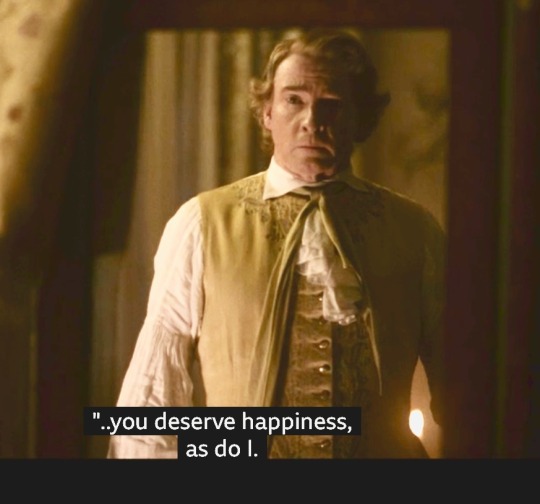
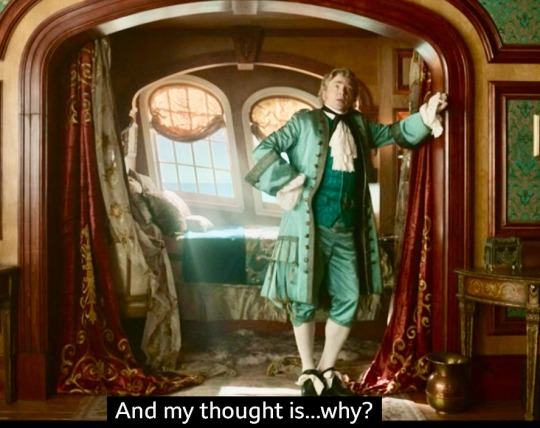
Stede is also a polymath and likely an autodidact - I doubt he learned about ‘insane foliage’ at school. He is self-motived and seems to have knowledge across a broad spectrum of disciplines. Literature, drama, botany, entomology, psychology, art, textiles. Stede’s very much about the life of the mind.
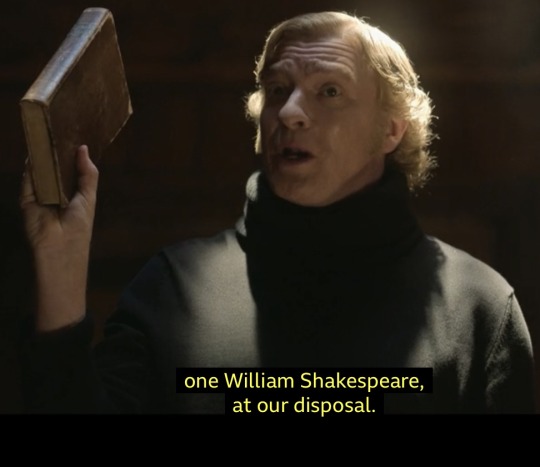
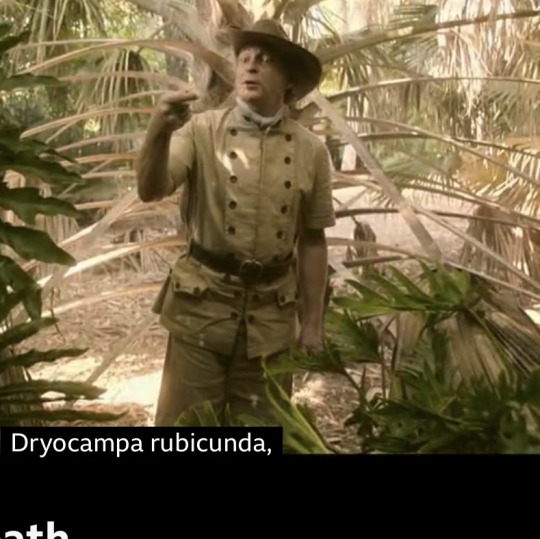
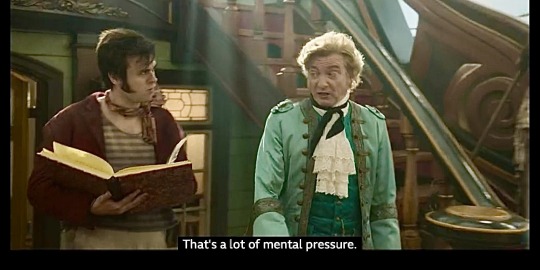
And he’ll approach areas at which he’s not so gifted, such as cartography and sword-fighting, with the enthusiasm of a dilettante; when he can’t succeed the traditional way, he simply subverts the discipline and does it his own. However, the most important thing for me in defining Stede as a Renaissance man is his humanism. People are front and centre. Sometimes that person is himself, and he loses sight of others. But it’s okay as that’s the point. Humanism is partly about being a messy individual who can do better. And Stede is someone who can learn and alter his position when circumstances change. He might not do so in the best way all of the time, but he is a quick-learner and highly-adaptable.
Stede also understands that no culture or institution is bigger than the people within it. The most important thing is human dignity - it’s what he shows and teaches Ned’s crew: that they deserve to be respected as people. Stede also has a strong moral core. When he messes up, he feels it deeply. He demonstrates strong ethics towards the natural world too - he’s absolutely disgusted by turtle vs. crab. Stede believes not so much in human superiority, but human responsibility, and this is the flip side of having dignity as a human being.
Another aspect of Stede’s humanism is his belief that culture should be accessible to all. Some of this might be naivety on Stede’s part rather than a well-thought out philosophy, but he believes in it intuitively. Stede wants the crew to have access to his library despite not recognising they can’t all read. He gives them musical instruments and sports facilities - he’s interested in what makes people flourish. And Stede practically invents art therapy!
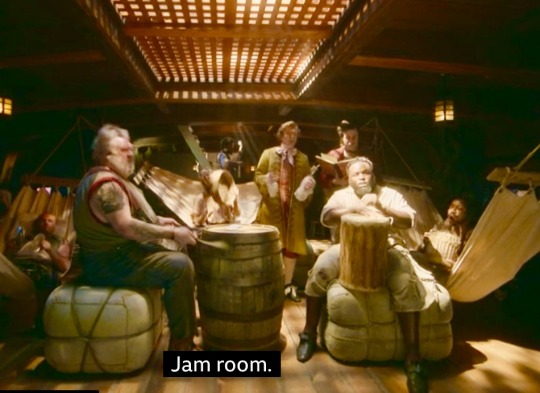
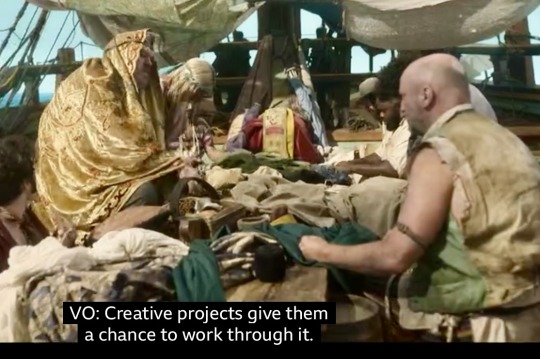
His ship is also a safe-space for human relationships to blossom - romantic, platonic, and in between. Zheng’s ship might appear to offer collective harmony, but it’s mandated and dogmatically applied. Opting out of morning tai chi for a 24-hour shagathon might be viewed as an act of dissent. No such big brother is judging you on Stede’s Revenge.
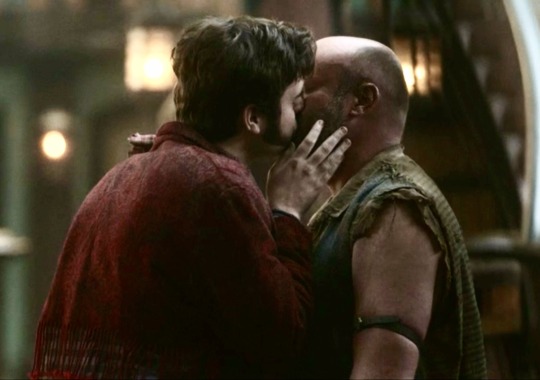
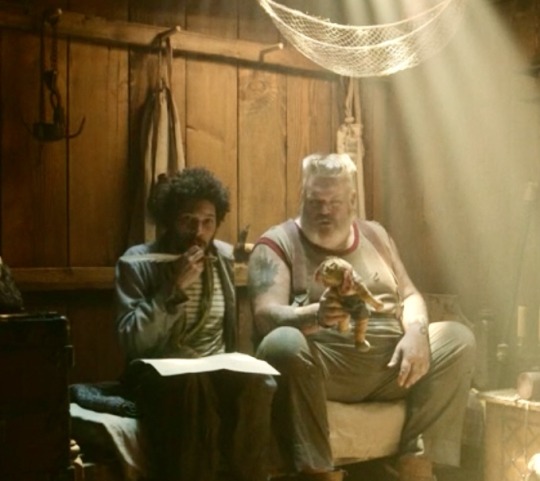
And all of this is because of the man Stede is, and the influence he has on those around him. Sometimes it falls on deaf ears. Many don’t like what Stede’s offering. Others actively rebel against it. But anyone with an ounce of goodness will get what Stede Bonnet is about and embrace it. Stede doesn’t seem to understand his own power, it comes from such an authentic place. For me, it makes him all the more endearing.
229 notes
·
View notes